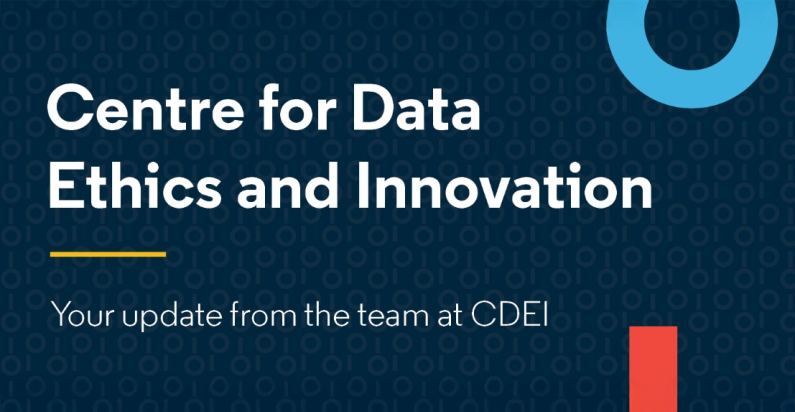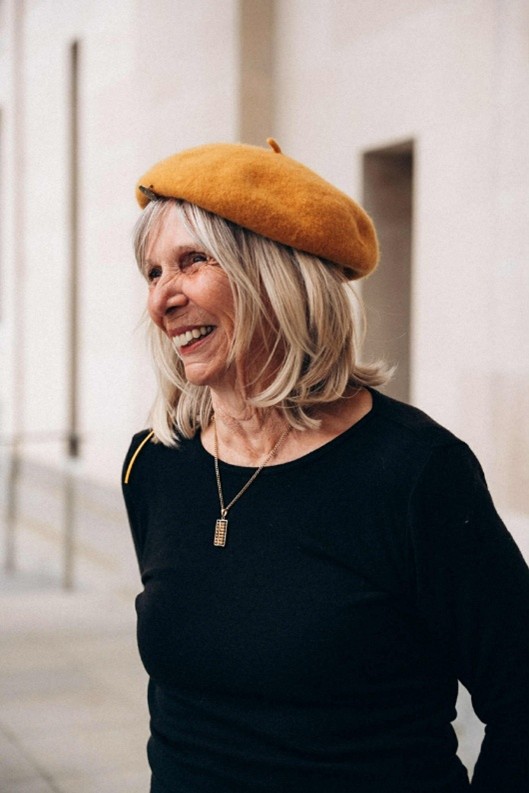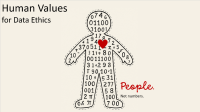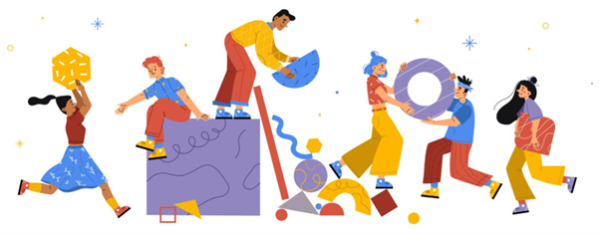
The following articles are from the Centre for Data Ethics and Innovation's November 2025 newsletter. The newsletter comes out quarterly, full of news, commentary, opinion, and education. Sign up by emailing dataethics@stats.govt.nz
By Dame Diane Robertson
Dame Diane Robertson’s biography
 Diane is a successful social sector entrepreneur, giving her a unique combination of strong business, financial and data skills with strong social sector credentials. Diane is the chair of the chair of the New Zealand Behavioural Insights advisory group (Nudge Unit) and the Inaugural Chair of the Data Futures Partnership. Her current role is Executive Director for the New Zealand Data Trust. The Partnership has written and published: “Guidelines to Social Licence”, “Trusted Data ‘and “Governance of Data guidelines.” Diane is a former City Missioner at the Auckland City Mission. She designed the Family 100 Research project and was responsible for the collation and analysis of data gathered from the participants. This has become one of New Zealand’s leading authorities on families living in poverty. Working with Statistics New Zealand, Diane led a project to add Auckland City Mission data to the Integrated Data Infrastructure (IDI). Her passion is to deliver better outcomes for New Zealanders through the development of sound policies informed by qualitative and quantitative data. Diane was made Dame Companion DNZM, is a Paul Harris Fellow and the recipient of the 1990 Medal.
Diane is a successful social sector entrepreneur, giving her a unique combination of strong business, financial and data skills with strong social sector credentials. Diane is the chair of the chair of the New Zealand Behavioural Insights advisory group (Nudge Unit) and the Inaugural Chair of the Data Futures Partnership. Her current role is Executive Director for the New Zealand Data Trust. The Partnership has written and published: “Guidelines to Social Licence”, “Trusted Data ‘and “Governance of Data guidelines.” Diane is a former City Missioner at the Auckland City Mission. She designed the Family 100 Research project and was responsible for the collation and analysis of data gathered from the participants. This has become one of New Zealand’s leading authorities on families living in poverty. Working with Statistics New Zealand, Diane led a project to add Auckland City Mission data to the Integrated Data Infrastructure (IDI). Her passion is to deliver better outcomes for New Zealanders through the development of sound policies informed by qualitative and quantitative data. Diane was made Dame Companion DNZM, is a Paul Harris Fellow and the recipient of the 1990 Medal.
Tēnā koutou katoa
In our increasingly digital world, the collection and use of data impact the lives of everyone including our most vulnerable populations,
Throughout my career, I have worked closely with individuals living with HIV and AIDS, the homeless, those grappling with poverty, and survivors of physical and sexual abuse. These communities have taught me the profound responsibility that comes with data stewardship. Privacy and trust lie at the heart of their narratives.
As chair of the Data Futures Working Group in 2018, I travelled nationwide to engage diverse communities about their views on data use and control. These consultations revealed that individuals seek more than mere compliance with legal regulations; they desire assurance of respectful and trustworthy data management.
In this context, robust data governance and ethical frameworks become essential. Rapid technological advancements — especially in artificial intelligence and quantum computing — should not overshadow the need for ethical practices; rather, they necessitate placing ethics at the forefront of data handling. The challenge we face is ensuring that all stakeholders not only understand these ethical imperatives but also actively apply them in their data interactions.
Ultimately, building trust is critical for fostering community acceptance and collaboration. Effective data ethics must guide the technical aspects of data management while also nurturing relationships between data holders and communities. As we move forward, prioritizing human-centric ethics will help navigate the complexities of data use and uphold the dignity of those we serve.
Dame Diane Roberston
Data shapes every part of our lives, so ethical thinking must be accessible to everyone, not just experts. Every interaction with data has human impact, even if we can’t see it. Emma shares why we're creating a new, general-purpose, values-based data ethics framework designed to empower people, build trust, and support responsible innovation. Grounded in six human values, it aims to make data ethics relatable, pliable, and inclusive.
Everyone needs to care about data ethics, not just data specialists. With data and technology increasingly shaping our lives, we need a strong, evolving culture of ethics to keep people safe and well.
Emerging technologies like AI amplify the impact of data use and can distance us from the humans behind the data. Every data point represents a person, often someone vulnerable, and putting people and their data first is no longer optional - it’s essential.
Trust has fast become a critical currency and asset that underpins innovation, technology adoption, and data use. Once built, trust drives better outcomes for organisations and the people they serve. Those that proactively embed ethics will be better positioned to build and maintain trust.
While many excellent ethical frameworks exist, they can be complex, domain-specific, or inaccessible to non-experts.
Ethics training is typically reserved for data roles, but we need herd immunity - a culture where everyone is informed and empowered, including those across the organisation that are not necessarily at the coal face of data, but who are just as important in helping us do the right thing.
Everyone now has a role to play., but not everyone is given the skills or knowledge to play their part.
This is the gap we are trying to address - we want to help everyone do their bit!
Our solution is a general data ethics framework anchored to six human values.
It’s not a replacement for expert tools, but a flexible, relatable way to build understanding, awareness, and critical thinking across all levels or domains.
The spine to our fledgling all-purpose data ethics framework are the six human values:

Ensure people and communities are informed and included early, in a fair and balanced way. Provide information to help those people involved fully understand what's happening with their information and actively involve them in the data use and decision-making process.
Responsible Protection
Act as careful stewards of people's information with strong safeguards, governance and security, while only collecting what is needed and being accountable for protecting people’s data from misuse.
Fair and Just
Ensure data collection, use and data practices are fair, legal and equitable and don’t create or perpetuate discrimination or harm.
Empowered Choices
Give people meaningful control over their personal information, including the ability to understand, consent, access, correct, and influence how it's used to make decisions about their lives.
Collaborative Value
Create meaningful partnership and connection with communities to ensure data collection and use creates tangible and shared benefits that people want and need.
Respected and Understood
Recognise and respect the cultural and personal significance of people’s information and ensure data practices take context into account. Data practises should be representative and honour diverse worldviews, values, and ways of understanding.
When ethical thinking is embedded organisation-wide, we innovate more safely, identify risks earlier, and protect people and reputations.
A shared ethical foundation lifts standards and people.
A wonderful panel to discuss “Human Values and Trust in Data, by Fiona Wharton, Principal Advisor at CDEI
World Ethics Day has been celebrated since 2014 and provides an opportunity to empower ethics through action, both individually and collectively.
This year’s theme was ‘Ethics re-envisioned’.
At Stats NZ, we celebrated World Ethics Day with a focus on ‘Trust in Data and Human Values’. CDEI introduced the Human Values for Data Ethics within the context of decreasing trust in Aotearoa – both horizontal trust (between individuals and communities) and vertical trust (between citizens and institutions).
A panel shared their expertise and insights on practical ways that ethics can bridge differences and help us move forward together with data and AI.
The panel was facilitated by Emma MacDonald and featured inspiring people across our network including Lindsey Te Ata o Tū MacDonald (University of Canterbury), Anna Pendergrast (Antistatic), Malcolm Mersham (Trust Tairāwhiti), Colin Simpson (University of Auckland), and Tim Young and Ingrid Jones (MyLife MyVoice).
It was a great discussion with many moments of consensus, especially around the necessity for transparency and accessibility, and the potential for AI to benefit communities.
Below are a few quotes to give you a flavour of the discussion:
“Ensuring that data and AI systems are accessible going forward and co-designed with disabled people is crucial for all New Zealanders to truly benefit from technological progress while minimizing potential harms. By embedding accessibility and inclusive design from the outset, we not only uphold our commitments under the UNCRPD but unlock innovation and opportunity for all New Zealanders.” – Tim Young
“Nothing about us, without us. It’s such a beautiful statement and we would achieve so much if we lived by it.” – Ingrid Jones
“The question we've always got to ask is - who's this for and where's the value and who's winning and who's not winning, and ultimately the only way we can all win together is bringing our communities in as close to the data and insights as we can. And that means there's an onus and responsibility on us to build capability and capacity in our communities to understand these things, create visibility, take ownership.” – Malcolm Mersham
“From a Rangatiratanga perspective… I think we should conceptually, and as much practically as possible, think about people owning their own data.” – Lindsey Te Ata o Tū MacDonald
“A practical action is being able to sit with discomfort because if you're doing things to give people actual choices on how their data and information is used, you might have to make trade-offs that you didn’t necessarily think about in the first place … just being able to sit with the fact that you might need to pivot and change course and being open to that because that’s something that can mean that we can make real change.” – Anna Pendergrast
“The technology is moving so fast at the moment that you're constantly in change, but the thing that isn't changing is humans and our values should stay as the core.” – Emma MacDonald
“In New Zealand we could say that if we get it right - AI stops being a technology story and becomes a trust story.” – Colin Simpson
To view the panel discussion, you can access the video here:
Video recording
Click on the links below to further explore some of the topics raised by our speakers:
A case study for CDEI by Dr Michael O’Sullivan
This case study highlights how putting community at the heart of innovation creates real value.
Michael O’Sullivan’s response to the 2023 Anniversary Day floods turned crisis into collaboration, showing the power of co-creating solutions with those most affected. His work demonstrates that the best ideas emerge when communities are empowered to shape their own futures, and he shares practical advice for doing just that.
Data Ethics isn’t just about how you collect, store, use and share insights from data but also how you build trust and reciprocity.
Part of building social license is rooted in ethical values CDEI believe are crucial – collaborating and engaging with our communities and stakeholders.
Communities are our first port of call and a critical part of understanding any problems they may be experiencing. We work with them to find a solution, and this may or may not include technology.
Social licence is an important part of data ethics for organisations working outside of expected social norms, and what helps create social licence is meaningful community engagement and participation.
Here at the CDEI, we believe strongly in the importance of social licence and community collaboration, especially when it comes to data and innovation. Our communities are the experts of their environments and are a valuable resource when it comes to understanding the outcomes they need and want.
These groups understand the key issues that cause impact, and are guardians of the insights needed to solve them. Engaging authentically with people builds trust and leads to data innovations that make meaningful change.
Mike O’Sullivan is the Associate Professor from the Department of Engineering Science and Biomedical Engineering, Waipapa Taumata Rau - University of Auckland, Deputy Director of Te Pūnaha Matatini, Aotearoa NZ’s Centre of Research Excellence on Complex Systems, Co-Founder/Co-Director of Operations Research Union Analytics (ORUA), and lead for The Digital Ecosystems Project.
Michael O’Sullivan is a shining symbol of working within the community to identify and understand problems and collectively find solutions, some with technology, others with connection.
One of many examples of Michael’s community first approach was triggered by flooding at his daughter’s pony club during the Auckland Anniversary Day floods in 2023. Michael and others in the community joined together to think about how they might have been able to divert the flooding to more useful areas and away from areas of concern. This sparked an idea to create a digital twin of the area and model whether it is possible to direct floods to better places.
As Michael was building the digital twin, he wanted a way for the community to be able to engage with the technology in a meaningful way. Data and models aren’t necessarily easy for people to interact with, after all.
Michael turned to Virtual Reality (VR) to enable those in the community to visualise and contribute to the twin’s modelling. Using VR meant that the local people could contribute their unique and lived knowledge of the land to help simulate interventions that might help redirect flood water.
“The use of VR has really helped people walk through their own backyard and gain their integral input into issues and potential solutions. It stimulated really engaged community problem solving while enriching the models and data with insights that would have otherwise been missing” Michael said.

Michael points out that a lot of technology, especially emerging, sits in universities, councils and big corporates and isn’t available or affordable for the people on the ground (communities who should be involved in important decision making that affects their lives).
They often don’t have access to the digital tools, or the data/knowledge required to drive them, so they can find themselves locked out of problem solving and decision making.
It’s often the case that those institutions making decisions are not part of the community those decisions affect.
Community experience has cemented Michael’s certainty that there is a lot of rich experience and knowledge within communities, but it is often ignored by decision makers who are using (or starting to use) AI or digital tools that are not available to those in the effected groups.
When Michael started the work on the flooding digital twin, he knew the technology, but didn’t know the unique rainfall, waterways, topography and terrain that caused the flooding.
The community’s wisdom and ideas to test potential solutions in the digital realm was a valuable resource in creating an environment where people could experiment and play and tweaking the model together was crucial.
“You have something you can all work and agree on which creates much better clarity about solutions for moving forward and decision making,” Michael said.
Community collaboration allowed for the creation of a better model and eventually a better solution. It has inspired Michael to promote the idea of creating community lead digital ecosystems, talking with them to understand the issues they face and what data is available.
“It’s all about problem solving with communities, empowered by technology [where appropriate].”
When it comes to working with communities, Michael offers some valuable advice:
We think what Michael is doing, but more importantly how he is doing it, is something for many to admire and aspire to incorporate in their own practice.
Community collaboration doesn’t have to be scary or difficult and can yield huge benefits for all involved. The coming together of expertise and wisdom leads to better outcomes, both for the innovation itself and for the community the innovation is for.
This is a story about someone with knowledge and tools working alongside a community to share what he has, incorporate what they have, and work towards solving an issue that is important for them.
It’s about building trusted relationships, listening to understand, rather than wading in with 'this is how we need to solve this'. Michael demonstrated sharing technology to explore the problem in a way that everyone can be involved and contribute their knowledge (data) to find the right solution.
Michael’s story is about about trust and reciprocity. It is also an excellent example of Collaborative Value, one of CDEI’s new Human Values for Data Ethics.
It demonstrates perfectly that focusing on and working with people and communities helps to enrich solutions, creating outcomes with real positive impact for the community and the researcher alike.
Collaborative Value is one of our six human values for data ethics – the backbone to our fledgling all-purpose data ethics framework.
The remaining five values, as discussed earlier in the newsletter, being:
